
Bridge Barriers Positioned To Protect Miller’s Run Covered Bridge
Lyndon Institute Welding And Fabrication Students Cut Ribbon On Barrier Project They Helped Complete
Dana Gray grayd@caledonian-record.com Staff Writer Mar 21, 2025 Updated Mar 22, 2025
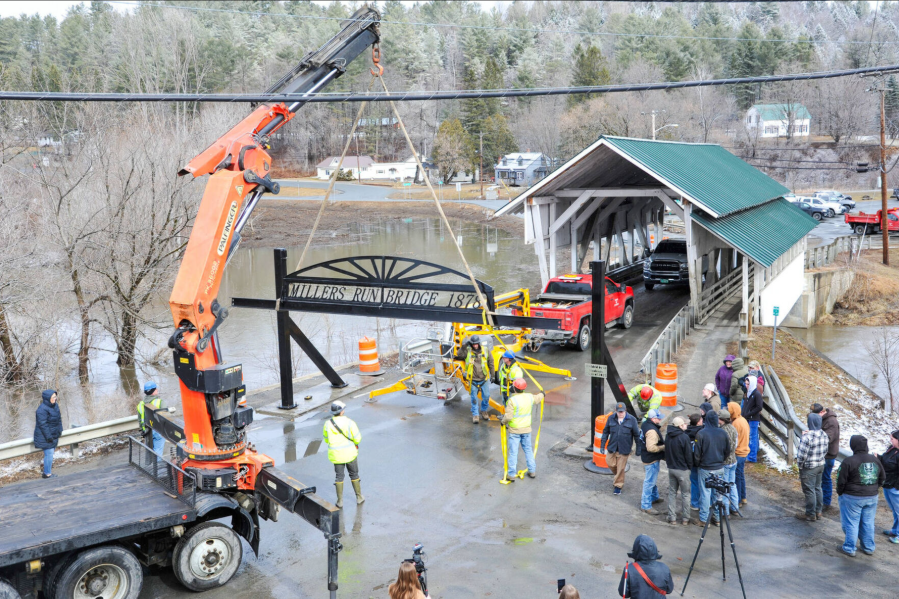
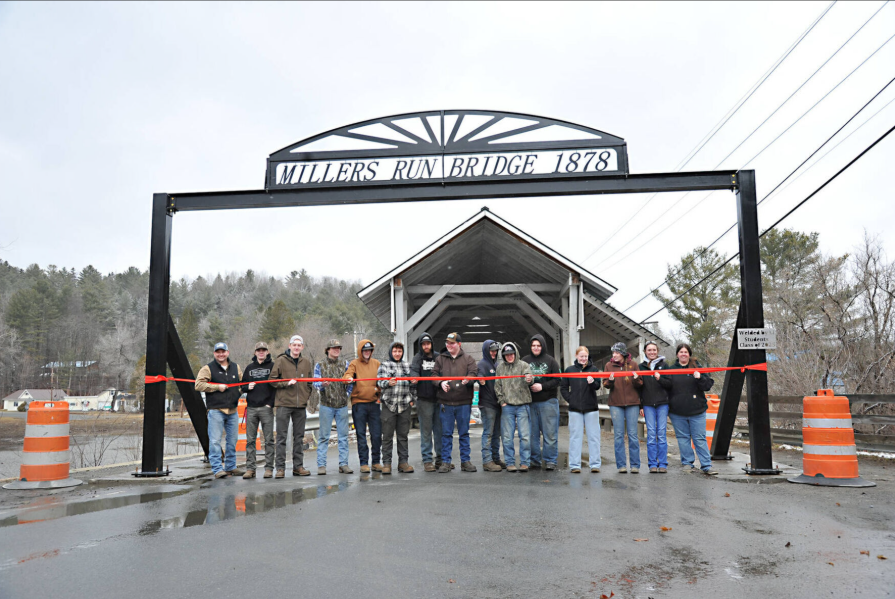
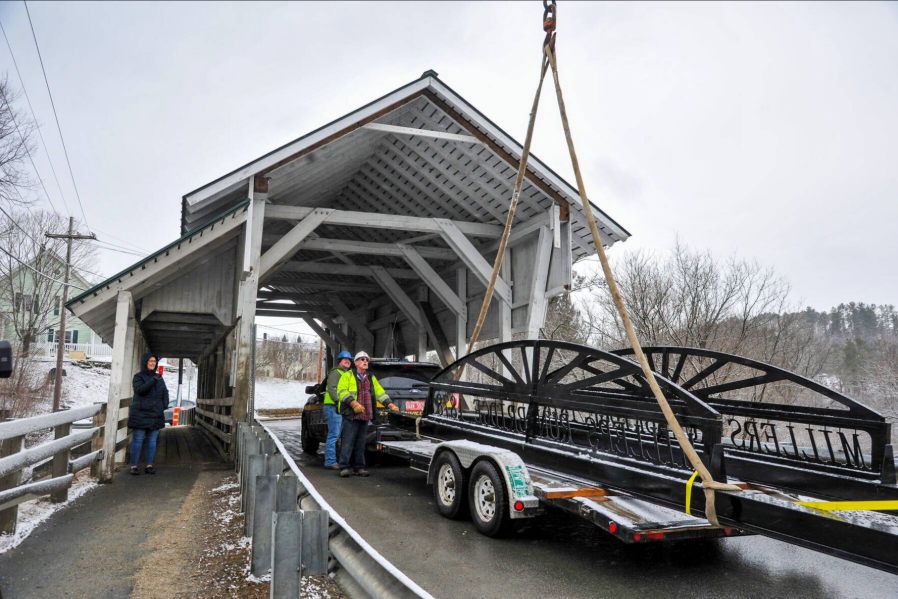
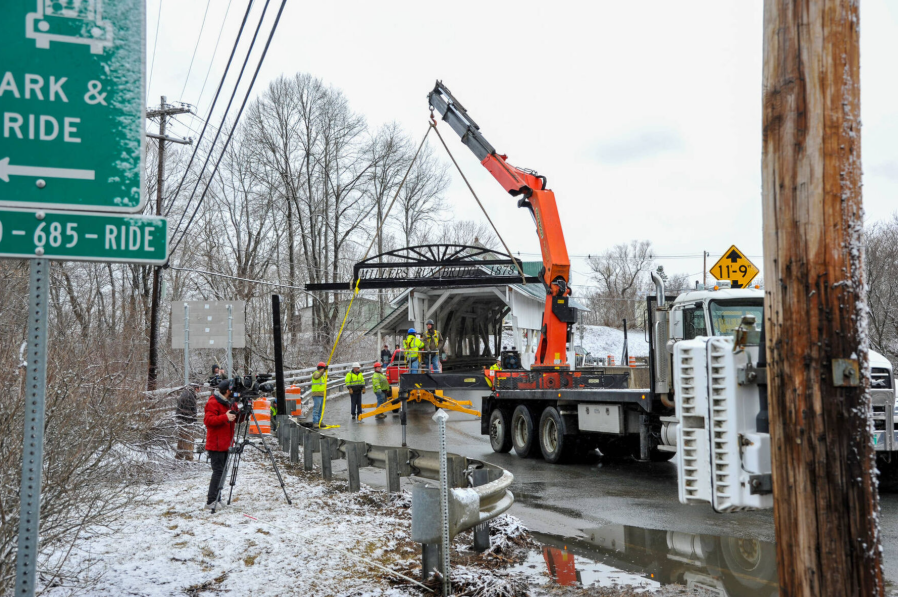
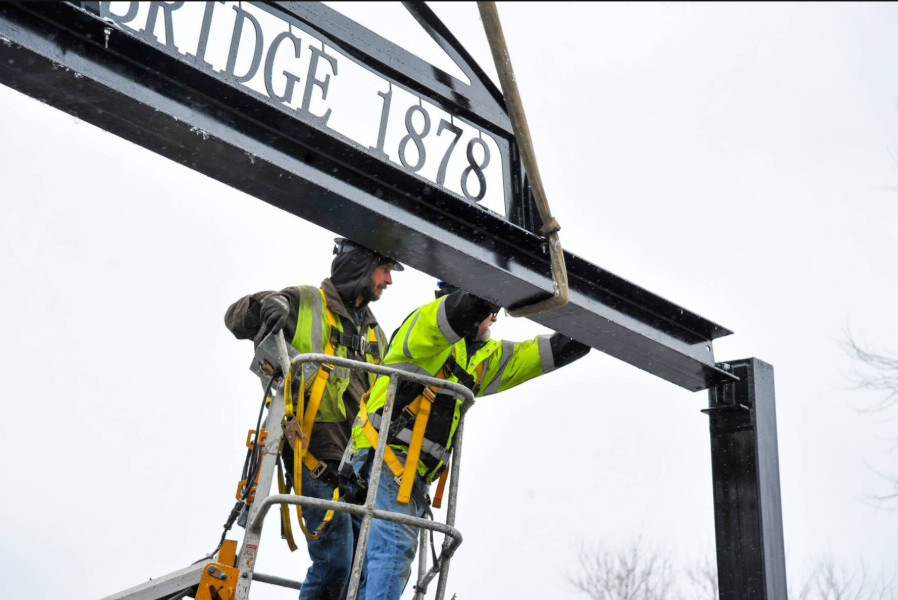
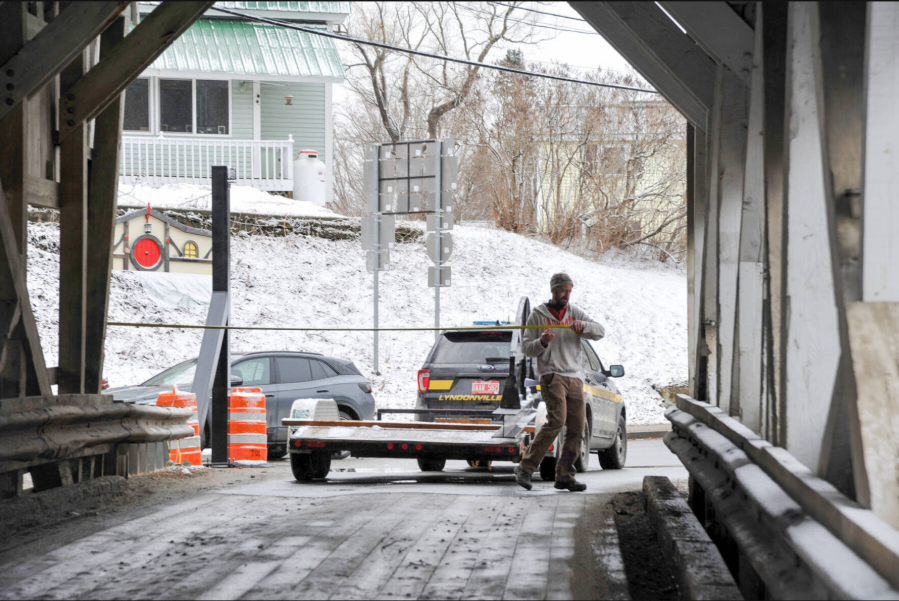
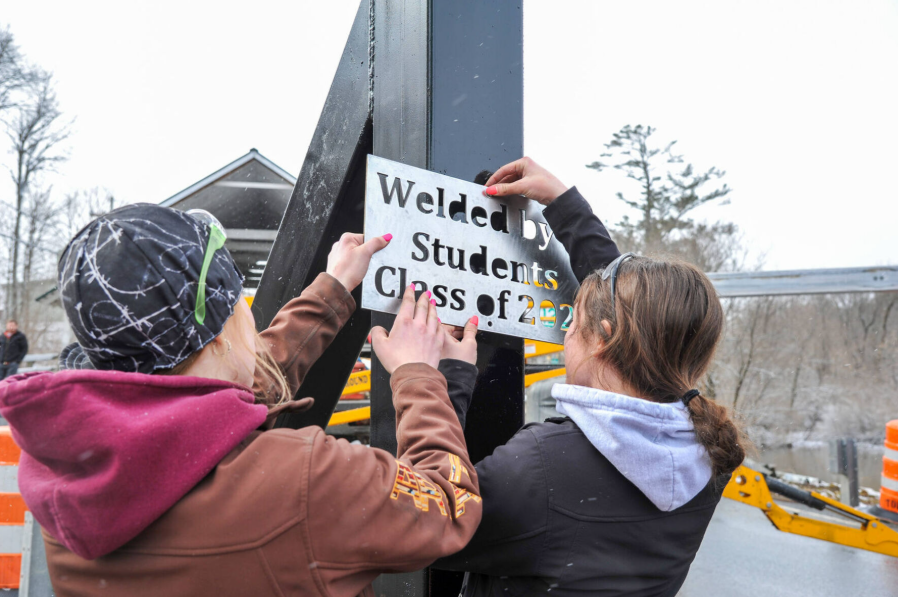
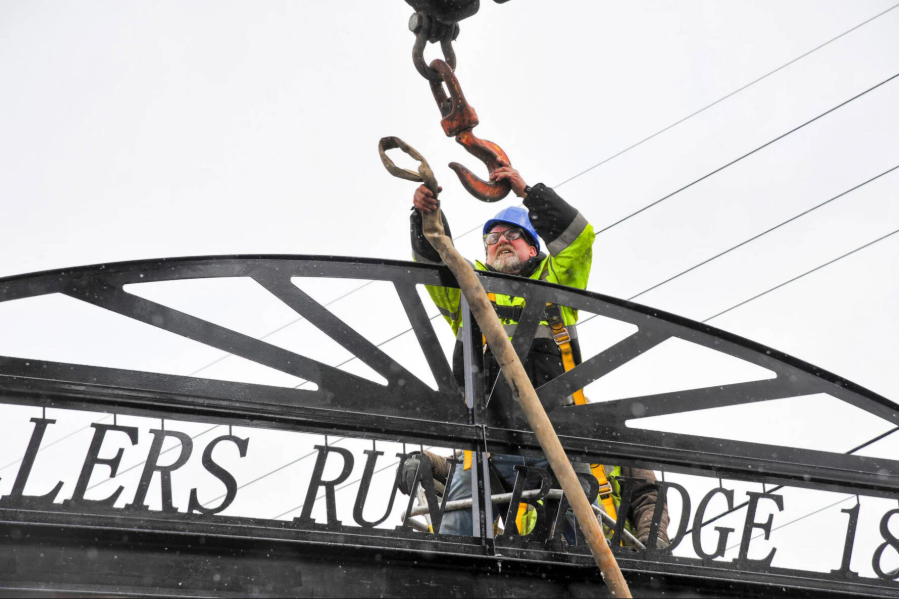
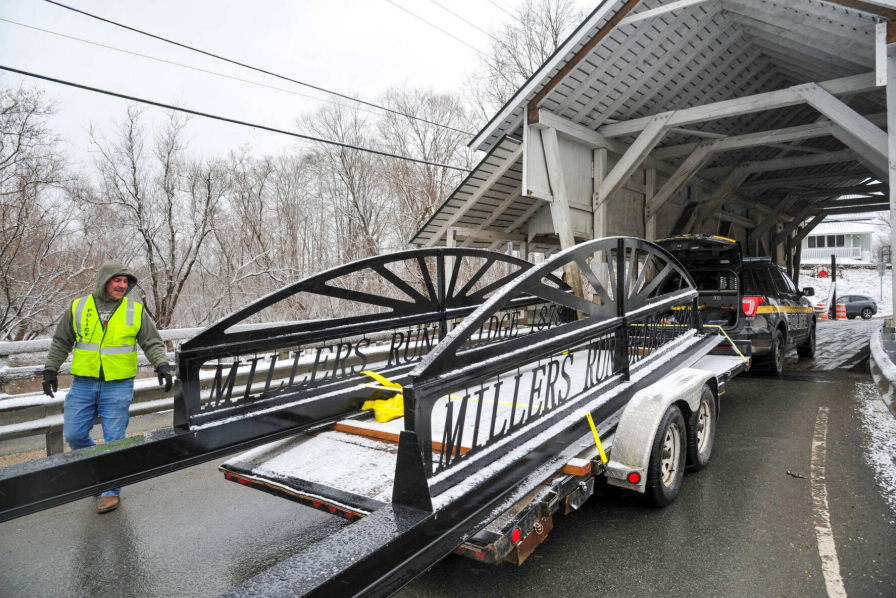
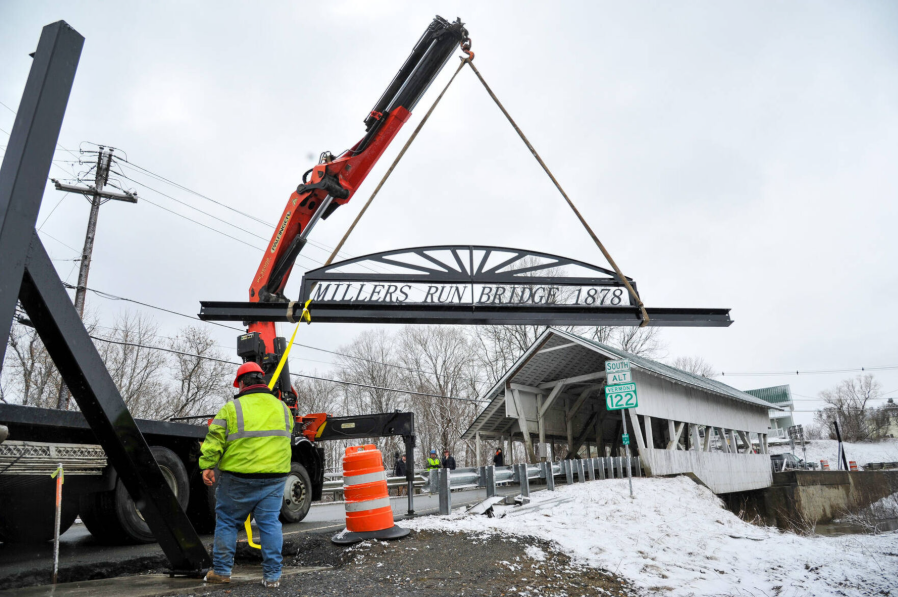
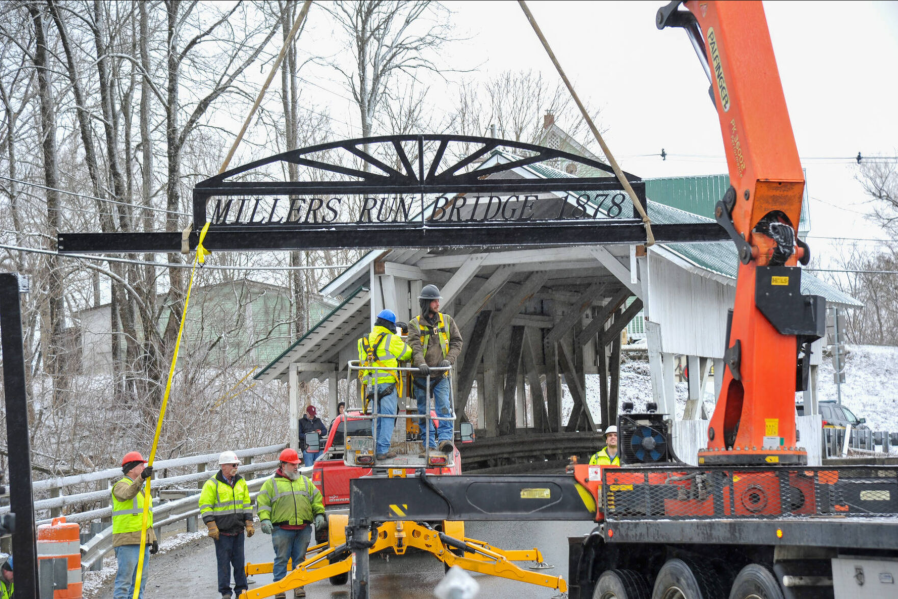
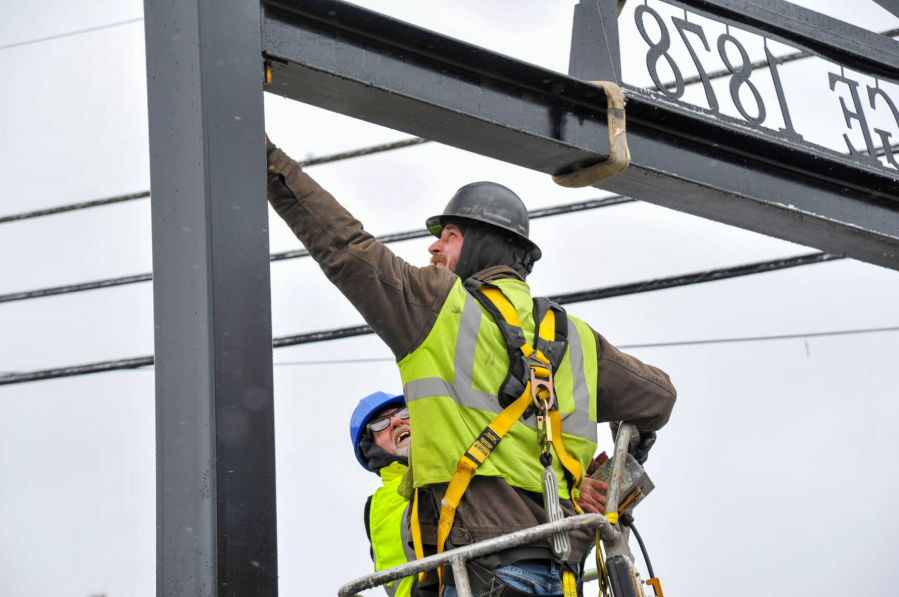
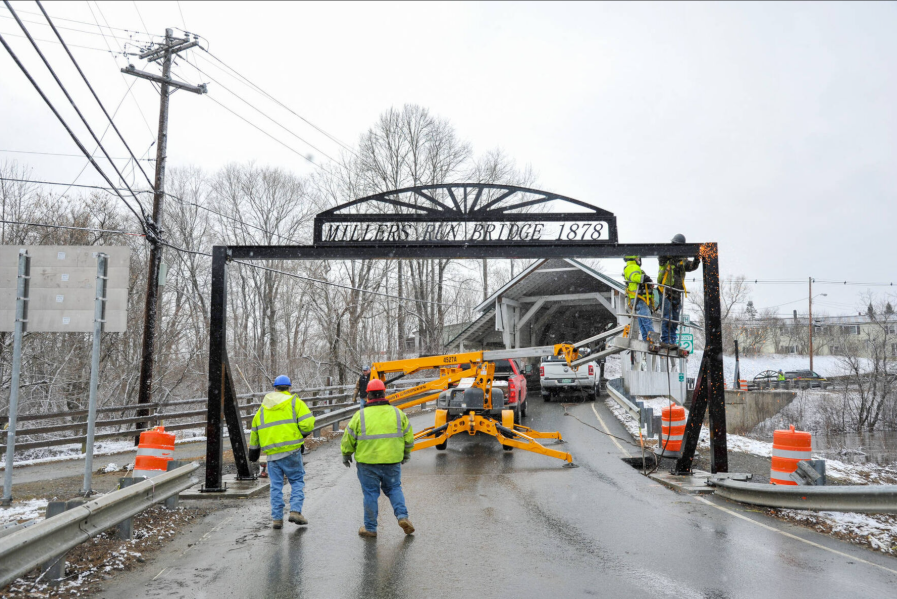
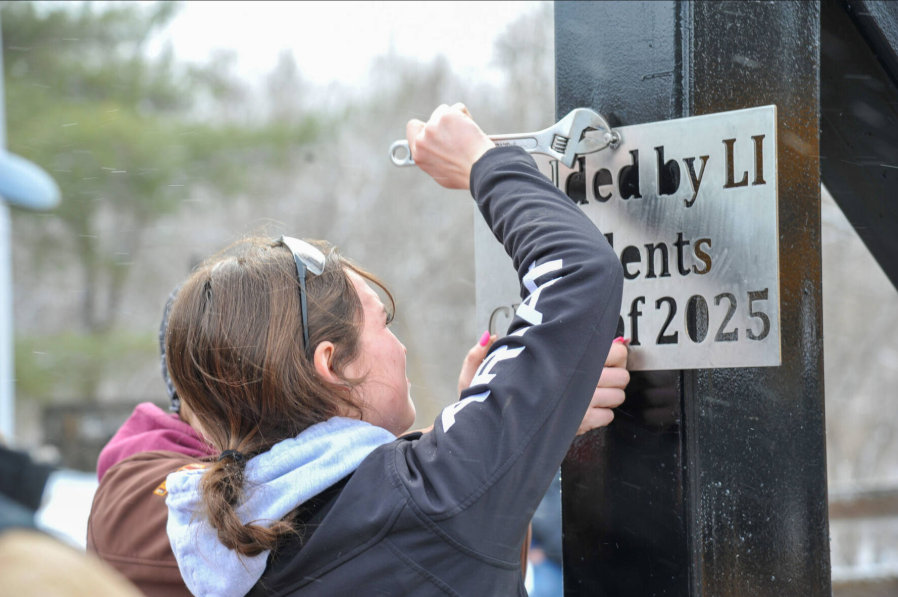
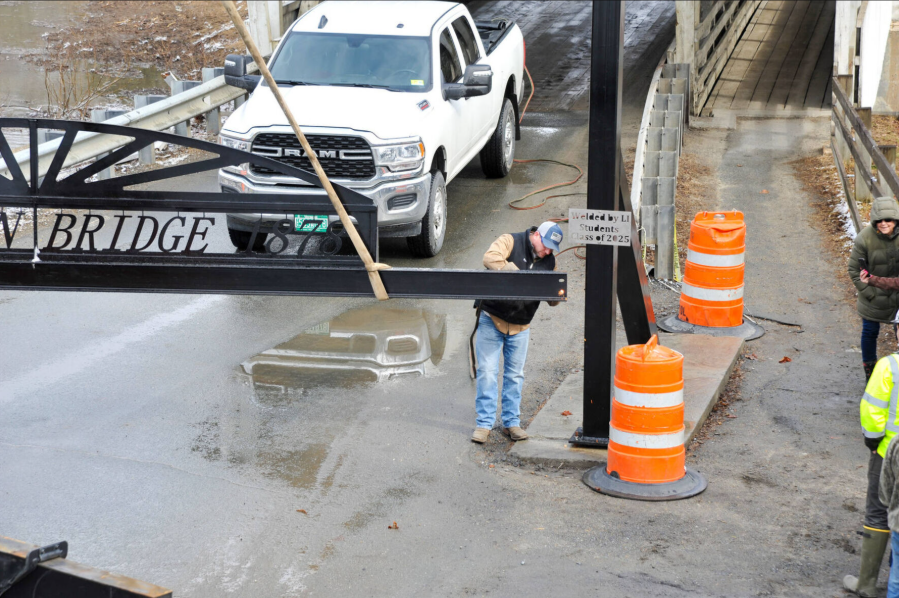

LYNDON CENTER — Decorative steel beams now protect the Miller’s Run Covered Bridge.
It took a lot of talk and a lot of bridge repairs to get to this point, and the relief of getting there on a chilly Friday morning was conveyed in a congratulatory fist bump.
Town Administrator Justin Smith and Dan Renaudette, current Lyndon Police Officer and former town selectman smiled and rapped knuckles in a brief moment of shared celebration after Lyndon Institute welding students cut a ribbon to mark the installation of the barriers.
They are designed to keep trucks too tall for a safe bridge passage from ever getting to the wooden structure and to prevent future damage. Instead of breakable wooden boards on the north and south faces of the bridge, tall trucks will now meet a heavily anchored steel crossbeam on either side of the bridge.
“Hopefully, this works and solves the issue once and for all,” said Smith.
The barriers were conceived nearly three years ago to prevent vehicles that exceed the 11-foot-9 height limit from hitting the historic 146-year-old span.
The bridge has repeatedly been struck over the years, including at least four times in 2023.
Repairs typically cost $1,100 per incident. The police department was called upon to deal with the drivers, and in many cases, locate the drivers, and the town’s highway crew needed to replace broken boards. Many repairs required the closure of the bridge.
The cost to build and install the new barriers was estimated at $60,000, which will be paid for through a combination of voter-approved funds and American Rescue Plan Act (ARPA) money.
“People will look at this as an expensive thing to do to protect a covered bridge,” said Smith, “but if you were to price out a two-lane bridge to replace it you’re talking a couple million dollars.”
He was on scene for the installation that began at 9 a.m. in swirling wind and snowfall. Other officials there to witness the culmination of a momentous community project were Selectman Kermit Fisher and Town Clerk Dawn Dwyer.
Renaudette was not only there to see a project he worked hard on as a selectman come to fruition but also to help with the installation. He used a police cruiser to tow a trailer loaded with the barriers from the LI campus to the bridge.
Ready to receive the barriers were Lyndon Highway crewmen and Hopkins & Sons Inc/H.S Supplies owner Pete Hopkins, his employee grandson, Ashton Gould, and the company’s remote-controlled crane.
The support beams on either side of the road had already been anchored in place by Techno Metal Post of Montpelier last fall. It was the crew’s and crane’s job on Friday morning to lower the cross-piece barriers into place and secure them there.
The barriers were designed to serve two purposes: stop trucks too tall for the bridge from getting to it and look nice enough not to take away from the bridge.
Workers from Momentum Manufacturing in the Lyndon-St. Johnsbury Industrial Park and LI welding and fabrication students combined efforts to reach the final product.
Welded to the steel beam is a metal arch with large metal letters and numbers that read “Miller’s Run Bridge 1878.”
Though it is too early to tell what happened with the first truck strike, Smith said craftspeople successfully made the barriers look good.
“It was a struggle to come up with a plan that would be both protecting the bridge but not detracting from it, and today to actually get to see it up with the decorative topping on it, I feel really good about the fact that it’s not going to detract from the bridge, and it actually will a nice addition to the bridge,” he said.
Smith said the success of the project was due to the collaboration of community members.
“As I’m watching this go together, it’s our town crew, it’s students at LI, it’s a local business that came here to offer crane service, it’s a manufacturing firm in our town that employs a lot of people,” he said. “It’s a really good community project that came together. It had a lot of moving parts, and a lot of people needed to be involved to make this happen.”
Next up will be community member Scott Desjardins, who has volunteered his time to replace the face boards of the bridge. He was there on Friday morning taking measurements.
Standing outside his home on a hill south of the bridge, Michael Grant watched with approval the installation of the barriers. He said he was especially pleased to know LI students were involved in the project.
Grant has maintained a popular youtube space dedicated to sharing videos of trucks that have destructively failed to make it through the covered bridge. He said the camera will remain aimed at the bridge, and he suspects at some point he’ll have footage of a truck striking the new steel barriers.
After the barriers were put in place, 13 LI students and their instructor, Ryan Brill, stretched a red ribbon between the barrier posts, and one of the students did the cutting honors, signifying the opening of the protective metal archways.
Brill said he is glad his students could be part of a community project of lasting value.
“I think it’s great for the students,” he said. “It’s something they can look back on for years to come.”
Editors note: Information reprinted with permission from the Caledonian Record Publishing Company, Inc.
